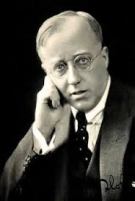Marc-Antoine Charpentier was born in or near Paris into a family of lawyers.
His father was a master scribe, which was perhaps an influence on the beautiful clarity and almost decorativeness of the composer’s manuscripts. Marc-Antoine did study law at university, but left after a term.
He seems to have been educated by the Jesuits, with whom he had a life-long association. So apart from his prestigious position as Mademoiselle de Guise’s court composer, he was also Director of Music at the principal Jesuit church in Paris, St. Paul-St. Louis. He was in constant demand to compose music for numerous churches, colleges and abbeys around Paris. Towards the end of his life he was appointed Director of Music at the Sainte Chapelle. Therefore, while he was never a member of the Chapel Royal, he was the foremost composer working in Paris at the time.
Very little of Charpentier’s music was published in his lifetime, but he took care over its storage. He bequeathed his manuscripts to a nephew, Jacques Edouard, who tried to publish them, but there was by then little interest in his music. So Edouard sold them, bound in 28 large volumes. Some found their way into the king’s library. His music was not rediscovered until the 20th century.
Read more






